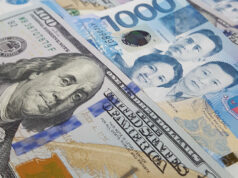Huawei to support national digitalization policies in APAC

By Brontë H. Lacsamana, Reporter
SHENZHEN-based multinational firm Huawei Technologies Co., Ltd. last week shared its upcoming plans for supporting digital transformation, green and low-carbon development, and information and communications technology (ICT) advancements in Asia Pacific (APAC), both as a tech powerhouse and as a partner of governments in the region.
Simon Lin, president of Huawei in APAC, said in a digital innovation congress in Singapore on May 19 that the company will become “a key contributor to the digital economy in APAC and work with its customers and partners to build a better green digital life.”
Held jointly by Huawei and the Association of Southeast Asian Nations (ASEAN) Foundation, the congress gathered more than 1,500 government officials, researchers, partners, and analysts from over 10 countries across the region.
“In these diverse ICT policies, digital infrastructure has become the foundation of digital economy. Moreover, it’s becoming more intelligent and green,” Mr. Lin said in a speech at the event.
The 2022 ASEAN Development Outlook report found that ASEAN is currently the fifth-largest economy in the world, valued at $3.2 trillion, and is expected to continue growing to become the fourth-largest by 2030.
To tap into and catalyze this growth, Huawei hopes to help APAC build “a leading and green infrastructure, including 5G, broadband, and data centers,” Mr. Lin said.
Nearly 10,000 enterprises have benefited from partnerships with Huawei, which plans to further invest $100 million in the Spark startup ecosystem to train local talent in digital skills. Its goal is to provide digital training to 500,000 locals within the next five years.
In the Philippines, Huawei is currently supporting ICT industry development through corporate social responsibility (CSR) programs.
For one, School in a Bag provides teachers and students in remote areas with access to technology and connectivity, while the Huawei Philippines Scholarship is offered in the company’s 60-plus partner universities in the country, covering over 13,000 students.
Meanwhile, Huawei’s flagship CSR program Seeds for the Future benefited over 200 students over the last seven years.
Mohamed Djelid, director of the United Nations Educational, Scientific and Cultural Organization (UNESCO) regional science bureau for APAC, said in the conference during a panel on national digitalization that a gap needs to be bridged in the region.
“Despite rapid digitalization, there is still a big gap for MSMEs (micro, small, and medium enterprises) and rural areas,” he said.
To move forward, governments must strengthen the following: regulatory frameworks, sustainable institutions, partnerships with the private sector, and digital literacy.
“The role of the private sector is critical in order to bridge the gap,” said Mr. Djelid.



